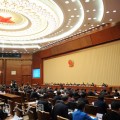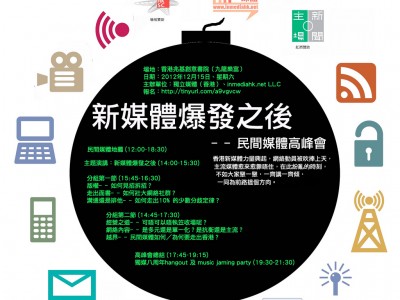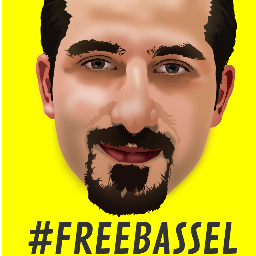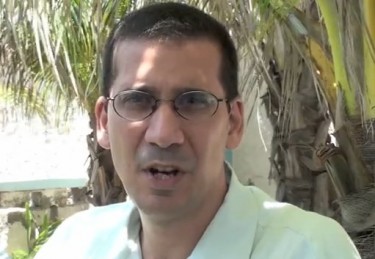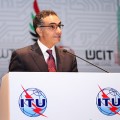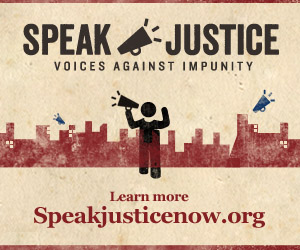Stories about Feature from December, 2012
10 New Year's Resolutions to Browse the Internet Safely in 2013
As 2012 draws to a close, dear reader, here at team Advox, we've decided to suggest 10 resolutions for 2013, presented in the form of a review of the tools and strategies to protect yourself online.
China Introduces New Rules to Tighten Government's Grip Over the Internet
On Friday, December 28, China's legislature approved a new set of rules intended to tighten government control over the Internet, forcing internet and online service providers to require real name registration from all their users. What do Chinese netizens think of the new regulations? What are the implications of the these new measures?
Bahrain: Tweet Leads Human Rights Activist to Prison
Sayed Yousif Almuhafda is the Vice President of the Bahrain Center for Human Rights. He is also member of the rights groups Front Line Defenders and Amnesty International. He was arrested on December 17th as he was monitoring a non violent demonstration in the capital Manama and reporting about it on Twitter.
Hong Kong: Citizen Media Summit Seeks Common Agenda
An online citizen media summit, organized by inmediahk.net, was held in Hong Kong on December 15, 2012. The objective of the gathering was to formulate a common agenda among local non-mainstream media actors.
Netizen Report: Surveillance Edition
This week's Netizen Report begins in the UK, where a Parliamentary committee has sent back the British Communications Data Bill for giving overly sweeping surveillance powers to government. From there, we recap highlights from the recent WCIT conference. Then, we move to China, Egypt, and beyond.
Facebook's Suspicious Behavior
Dead people liking stuff on Facebook. Living people liking and sharing stuff without their knowledge. Leila Nachawati investigates Facebook's unusual behavior.
China: Government Willingness to Expand Control Over Internet Worries Netizens
A series of articles published by state-run media outlets that justifies online real-name registration and cracking down of cyber crimes makes Chinese netizens worried about the beginning of a new wave of campaign against online dissent.
#FastforBassel: Campaign Launched for Syrian Netizen Facing Military Trial
Bassel Khartabil, also known as Bassel Safadi, is on military trial in Syria, where he is denied a lawyer. The open source software engineer and Creative Commons volunteer has been in jail since March. Supporters around the world have just launched a #FastforBassel campaign on Twitter to raise awareness about his case.
Free Bassel: Netizen Under Serious Threat
Bassel Khartabil Safadi, a Syrian open source developer and pro-democracy activist, has completed 9 months in jail. His friends and family fear for his life as he is being prosecuted by a military court.
Right to Forget: Between Data Protection, Memory and Personal Life in the Digital Era
A new essay from the Center for Studies on Freedom of Expression and Access to Information addresses the question of the "right to forget," one that might give back to individuals the control over their own information and, additionally, free them from their “digital past”.
What Happened at the WCIT-12: Interview With Beatriz Busaniche
The World Conference on International Telecommunications has just ended in Dubai, UAE. Beatriz Busaniche from Fundacion Vida Libre, Argentina, explains what was at stake at the UN-sponsored meeting.
Pakistan's Fight for Net Freedom
It’s been an active year for digital activism on Internet freedom in Pakistan. The fact that the United Nations deemed it a basic universal human right has not stopped authorities in Pakistan from clamping down on the world wide web in many different ways and by various means.
Latin America and the Caribbean Netizen Report: Detention Edition
This month, arrests of Internet users in Latin America and the Caribbean appear to have increased, with bloggers and activists in Ecuador, Colombia, and Cuba detained for their activities online. In this Netizen Report for Latin America and the Caribbean, we review some of these cases.
Netizen Report: Magna Carta Edition
In this week's Netizen Report we begin in the Philippines, where a "Magna Carta for Philippine Internet Freedom" has been proposed to replace the controversial Cybercrime Prevention Act. While including punishments for libel and cybercrime, the new legislation also guarantees the rights and protection of Internet users. From there, we move on to WCIT, Ireland, Kazakhstan and beyond.
Saudi Activist: “Public Trial Reveals Their Mentality and Lack of Evidence”
The eighth hearing session of one of Saudi Arabia's first public trials of two prominent human rights activists Mohammad Al-Qahtani and Abdullah Al-Hamid was held today at the Riyadh Criminal Court
Women Banned from Using Mobile Phones in Indian Villages
A village council in the Indian state of Bihar has banned women from using mobile phones because it is “debasing the social atmosphere” and leading couples to elope. Similar bans have also been seen in other parts of India.
The WCIT Wake-Up Call: Time To Broaden the Discussion on Internet Governance
World leaders are meeting in Dubai this week for the World Conference on International Telecommunications (WCIT), and depending on whose perspective you get, the future of the entire Internet as we know it may be at stake.
Netizen Report: WCIT Edition
This week's Netizen Report begins in Dubai, where the World Conference on Information Technology is underway. The meeting will review the current International Telecommunications Regulations that serve as the rules of digital connections and could make important decisions regarding the future of Internet governance. From there, we move to Costa Rica, South Africa, and beyond.
Speak Justice: Voices Against Impunity
Murder is the ultimate form of censorship against journalists. In most cases killers remain free, generating self-censorship among those still risking their lives to do their job. To break the cycle of fear and silence, the Committee to Protect Journalists is launching Speak Justice: Voices Against Impunity.
Tajik Official Blocks Facebook and Summons its CEO
The chief of the state-run telecommunications service in Tajikistan has ordered Facebook blocked and asked the social network's CEO to travel to the Central Asian country and meet with him. Tajik internet users now ridicule the official.


